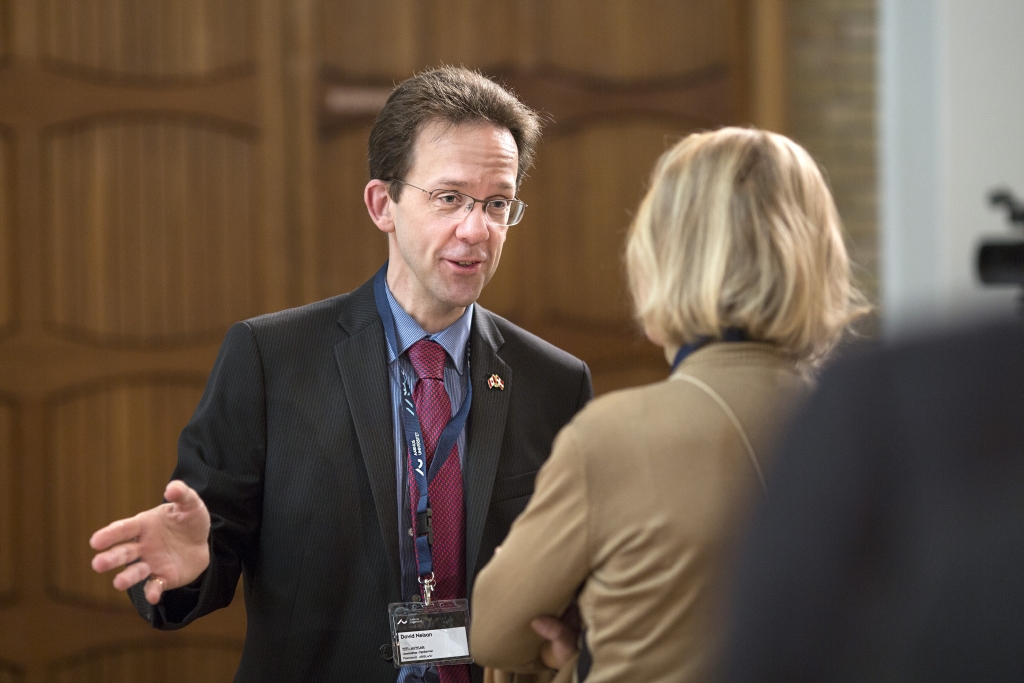Better data on companies, social policy and voter behaviour
Aarhus BSS will play a leading role in a new national project which aims to improve Danish research infrastructure. The project has just been awarded DKK 36 million and aims to help researchers and other stakeholders understand a wide range societal issues - from the impact of social policy to the relationship between socio-economic factors and voter behaviour.

The Ministry of Higher Education and Science has just granted DKK 36 million to the improvement of the research infrastructure, which allows researchers and other stakeholders to access a wide range of knowledge databases. Copenhagen Business School will head the Danish Research Data for the Sociale Sciences (DRDS) project, but this will take place in collaboration with a wide range of Danish research institutions. The University of Southern Denmark will head the work on the international databases containing financial data which e.g. Aarhus BSS makes extensive use of. Aarhus BSS will head the second part of the project, which involves register-based data.
This part of the project will be headed by Professor of Economics at Aarhus BSS Marianne Simonsen. Joining her in the register group are, among others, Professor of Economics Philipp Schröder and Professor of Political Science Rune Stubager, also from Aarhus BSS.
“It is of great importance to society that data is shared with everyone. Hopefully this data will make us more knowledgeable as a society as it will allow us to analyse issues we weren’t able to analyse before,” says Marianne Simonsen about the considerable work she is about to undertake.
Socially marginalised families should get the best offers
Over the next five years, the register group will allocate the funds to the various domains that have been selected. The aim is to compile data within one or more areas where the current data is insufficient or to consolidate the various data so that researchers or other stakeholders can find and use the data more easily. Access to the data must also be improved, so that more people can benefit from the data.
Personally, Marianne Simonsen is passionate about improving the data on one of Denmark’s largest welfare areas; the social policy area.
“Socially marginalised children must have the best possible conditions. Currently, it is a challenge to find data on what services these families are offered in the different municipalities, because the municipalities don’t report these to the ministry. That’s why it’s difficult to say anything about the impact of our social policy. I see a clear potential for improving the social policy if we can get better tools to analyse it,” says Marianne Simonsen.
Improving important voter data
The data basis for company statistics is also among the areas selected for improvement. The aim is to create a kind of “Data Warehouse” where you can get data from companies and their employees. Making consumer data available, e.g. data from the goods scanned in supermarkets, is another area targeted for improvement. Developing better voter data is also on the list. Professor of Political Science and election researcher Rune Stubager is very pleased that the voter database is now being expanded upon. The database was originally headed by Professor of Political Science Søren Risbjerg Thomsen and contains data on Danish elections held from 1979 until today.
“We are dealing with exact data on real voter behaviour. This makes the data very valuable. With the new funds, we can build an improved and future-proof database. The election database will be a useful tool which can be accessed by many more people than today, such as journalists, university students and upper secondary school teachers and students,” says Rune Stubager.
Within the voter data branch, work is also being done on how to link survey data to register-based data such as education, income, immigrant background, etc. This will enable analyses of the relationship between these socio-economic factors and voter behaviour.
“A truly national collaboration”
Vice-dean for Research at Aarhus BSS Per Baltzer Overgaard is pleased that the Ministry of Higher Education and Science has granted DKK 36 million for the work on the data infrastructure:
“The DRDS project is a truly national collaboration, which comprises all social science and business-oriented organisations in Denmark. This will facilitate useful interdisciplinary research collaborations. It is extremely important that we have secured a stable basic grant for the next five years which ensures access to the data infrastructure. The new grant will make data sources more accessible and open up new research perspectives which will broadly benefit the many departments at Aarhus BSS,” says Vice-dean for Research at Aarhus BSS Per Baltzer Overgaard.
For further info:
Marianne Simonsen
Professor of economics at Aarhus BSS at Aarhus University
msimonsen@econ.au.dk
+45 8716 5556
